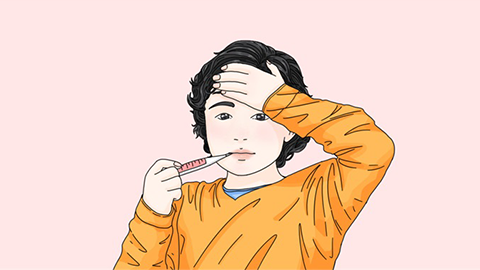What causes an increase in body temperature at noon?
Under normal circumstances, a rise in body temperature at noon may be caused by high environmental temperature, increased metabolism after lunch, upper respiratory tract infection, acute gastroenteritis, hyperthyroidism, or other reasons. If discomfort occurs, it is recommended to seek timely medical evaluation and treatment at a正规 hospital. Specific causes are analyzed as follows:
1. High environmental temperature
During midday, rising outdoor temperatures can make it difficult for the body to dissipate heat, leading to heat accumulation and a mild increase in body temperature. Moving to a cool, well-ventilated area, reducing clothing, using fans or air conditioning to regulate ambient temperature, and drinking more warm water to replenish fluids can help promote heat dissipation.

2. Increased metabolism after lunch
After consuming food at lunch, the body expends energy for digestion and absorption, increasing metabolic activity and heat production, which may cause a slight rise in body temperature. Avoid vigorous activity immediately after meals; rest appropriately, choose light and easily digestible foods, and avoid excessive intake of high-fat or high-protein foods to reduce metabolic burden.
3. Upper respiratory tract infection
Viral or bacterial infections of the upper respiratory tract trigger inflammatory responses and activate the immune system, leading to elevated body temperature, often accompanied by cough and sore throat. Under medical guidance, medications such as compound paracetamol and amantadine capsules, Lianhua Qingwen capsules, or amoxicillin-clavulanate potassium tablets may be taken. Adequate rest, avoidance of fatigue, and maintaining good indoor ventilation are also recommended.
4. Acute gastroenteritis
Ingestion of contaminated food can lead to bacterial or viral infection of the gastrointestinal tract, causing inflammation. Inflammatory factors stimulate the body's temperature regulation center, resulting in fever, often accompanied by abdominal pain and diarrhea. Under medical guidance, medications such as norfloxacin capsules, montmorillonite powder, or oral rehydration salts III may be used. Avoid oily and spicy foods temporarily; gradually resume a light diet after symptoms improve.
5. Hyperthyroidism
Excessive secretion of thyroid hormones accelerates metabolism and increases heat production, leading to generally elevated body temperature throughout the day, which may be more noticeable at noon. Symptoms may include palpitations and excessive sweating. Under medical supervision, medications such as methimazole tablets, propylthiouracil tablets, or propranolol tablets may be prescribed. Avoid iodine-rich foods such as kelp and seaweed, and have thyroid function regularly monitored.
In daily life, pay attention to adjusting clothing according to ambient temperature; maintain dietary hygiene and regular meal times; engage in moderate exercise to strengthen physical health and avoid overexertion. Seek prompt medical attention if body temperature remains elevated or is accompanied by other persistent symptoms to identify the underlying cause.










